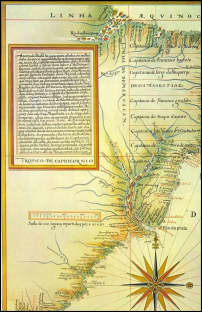On the legal basis for English possession of North America
By Kristopher A. Nelson
in
October 2011
300 words / 1 min.
Tweet
Share
James Muldoon’s article in The Many Legalities of Early America, “Discovery, Grant, Charter, Conquest or Purchase,” discusses the surprising influence the Pope’s validation of Spanish and Portuguese possessions in the New World played in English justifications for their own American territory. But this justification was merged with an English focus on improvements to the land.

Please note that this post is from 2011. Evaluate with care and in light of later events.

James Muldoon’s article in The Many Legalities of Early America, “Discovery, Grant, Charter, Conquest or Purchase,” discusses the surprising influence the Pope’s validation of Spanish and Portuguese possessions in the New World played in English justifications for their own American territory. But this justification was merged with an English focus on improvements to the land.
Unlike the extensive sixteenth and seventeenth century debates by Spaniards about the legal justification of their conquest, the English generally did not seriously argue over their own rights. Instead, despite their Protestant rejection of the Pope, they borrowed his language of allowing for territorial possession of “remote and heathen lands not in the actual possession of any Christian prince” (38). The English concept of “actual possession” required improvements to be made to the land (a rather Lockean concept, I would say), and the lack of such improvements created a “vacuum domicilium” that could be taken over by new settlers.
They wedded the concept of vaccuum domocilium to their idea that they had purchased other land from the Indians. Thus, land occupied by settlers was either purchased (if it had been inhabited) or occupied through improvement (if it had not).
